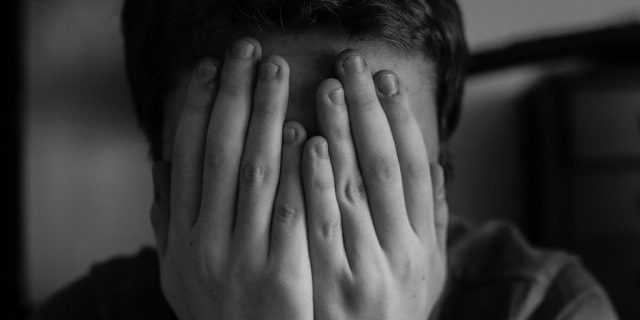
The last few months, my acne has gotten REALLY bad. I don’t just have a few pimples—my whole face is covered in really deep, painful zits. I feel like I’ve tried everything but nothing works. I feel so ugly, and I’m desperate. What can I do?
First, we’re sorry your skin is such a source of anxiety. It can be tempting for adults to dismiss acne as not a real problem or “just something everyone has to deal with.” But this minimizes the very real stress, anxiety and even pain it can cause.
Teens and young adults often get acne because their bodies produce more androgen, a chemical that triggers more oil production in your skin. Acne occurs when your hair follicles become plugged by oil (or sebum) and dead skin cells. Bacteria thrives in this environment, and can infect the follicle and create inflammation. This inflammation is the pimple. If this infection goes deeper into your skin, it can form a painful or itchy red bump filled with pus. This is called cystic acne, and it sounds like you may have it.
Unfortunately, many common over-the-counter treatments don’t work as well on cystic acne since the problem is deeper within the skin. Hormones, certain medications, stress, and what you eat can all affect your skin, so it’s worth keeping track of how your skin reacts to different lifestyle changes. Eating lots of fruits and vegetables, exercising, and being overall healthy can help fight acne. Also keep in mind that acne treatments can take 6-9 weeks to begin working.
That being said, it sounds like it’s time to talk to your medical provider. They can confirm that you’re dealing with cystic acne, and make sure you don’t have any medical conditions that may be making the problem worse, like polycystic ovarian syndrome (PCOS). Their treatment strategy will depend on the severity of your acne and what other acne therapies you’ve tried. Generally, healthcare providers will start with topical therapies, like skin cleansers, prescription-strength anti-acne gels and creams, and topical antibiotics. If your skin doesn’t get better with these, or it’s particularly severe, your health care provider may add on oral therapies. In this case, “oral” means the medication comes in pills that you’ll swallow, rather than creams, gels, or lotions that you put on your skin. Oral treatments include antibiotics to fight the bacteria production, and birth control pills (if you have a uterus) to decrease the amount of androgens moving through your body.
If your acne doesn’t get better with these treatments, your health care provider will probably refer you to a dermatologist. A dermatologist might recommend Isotretinoin, which some people call Accutane. This is a high, oral dose of Vitamin A. It can have some intense side effects, like dry skin, dizziness, joint pain, and even depression. It can also cause major birth defects if you become pregnant while taking it. If you do end up taking Isotretinoin, you’ll have to use a reliable method of contraception and take monthly pregnancy tests if you’re at risk for pregnancy. However, Isotretinoin is the most effective way to get rid of acne, and is the right step for many people who haven’t had luck with other treatments. Make sure you understand the potential side effects, pay attention to your mood, and communicate openly with your medical provider if you decide to take Isotretinoin.
You may have to go through more than one of these treatments to see improvements, but at least you can take a mental break from what sounds like an exhausting trial and error process. Even though it may feel impossible, avoid obsessing over your skin. Instead, spend time doing activities you enjoy. If it helps, use foundation or concealer to help cover your acne (just look for products labeled “non-comedogenic”). Remind yourself that even though it may not feel like it, you WILL get your acne under control. Talk to a friend, parent or trusted adult about how you’re feeling. You’re definitely not the only one who has struggled with self-esteem issues because of acne. If you begin to avoid activities you used to enjoy, consider talking to a therapist. If you live near NYC and are 10-22 years old, you can talk to a mental health provider at Mount Sinai Adolescent Health Center for free.
In the meantime, please, please, PLEASE do not pop or pick at your pimples. We know it can be tempting, but squeezing pimples drives the puss and bacteria deeper into your skin, making your acne even worse.
If you live near NYC, you can come to Mount Sinai Adolescent Health Center for a completely free and confidential appointment with an adolescent medicine specialist to help you with your skin troubles.


